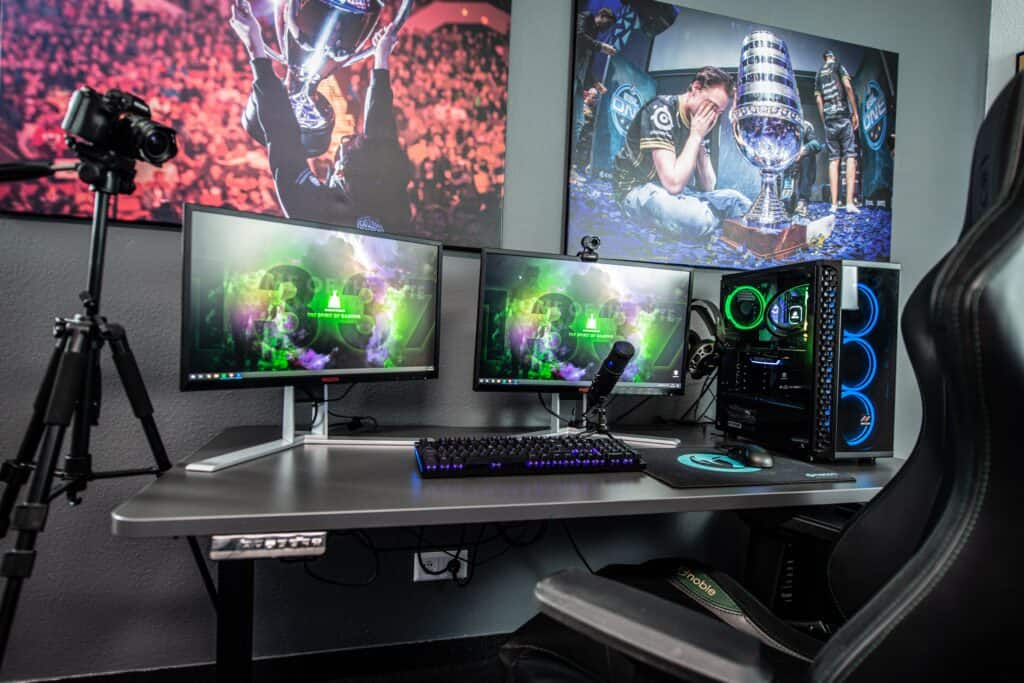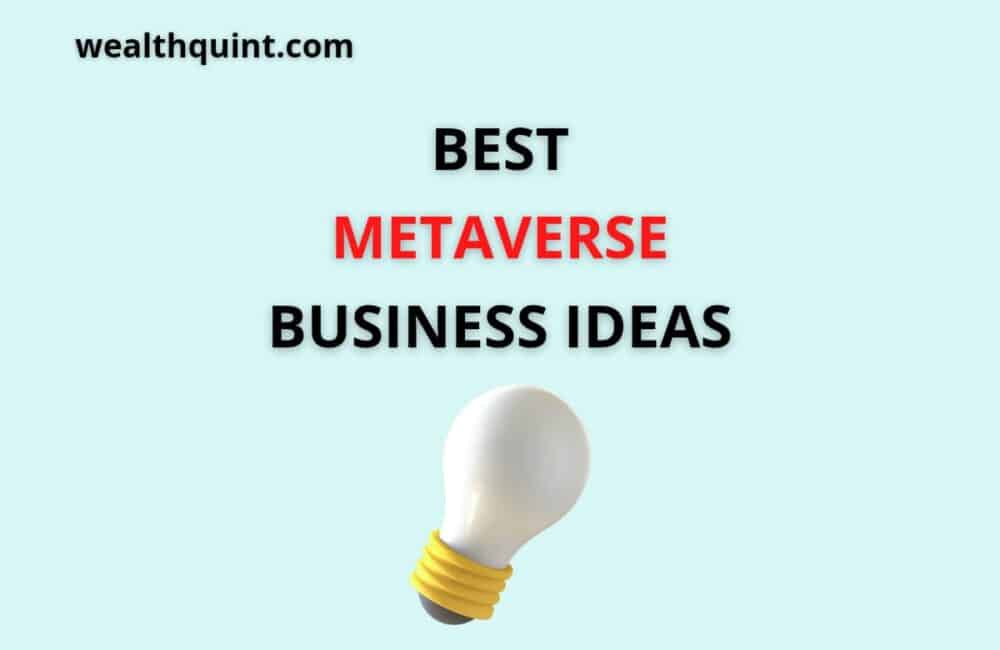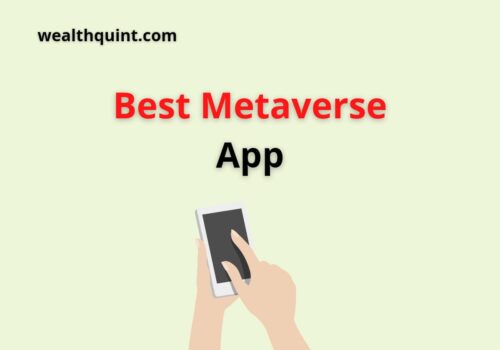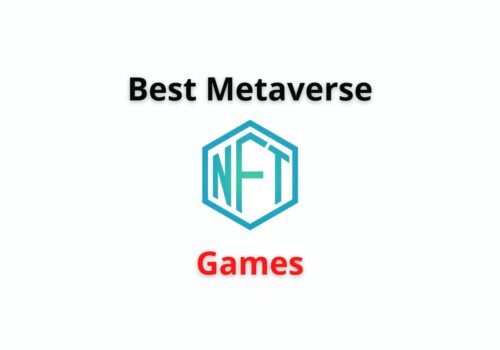In modern business, the Metaverse is likely to provide the most incredible opportunity since the advent of the internet.
It is the next step in evolving digital platforms and the successor to today’s mobile internet. The innovation of technology is one of the most important aspects of supporting business leaders in creating new products and transforming their organizations.
Metaverses have emerged as a technology innovation that can create many strategic business opportunities.
Since the involvement of large corporations in metaverse projects became apparent, the search for new metaverse business opportunities has intensified.
Businesses can benefit from a virtual world that lets users explore digital spaces and interact with other users.
We know that most people will interact with the Metaverse through 2D applications for the time being.
We are already seeing glimpses of this future. In this case, it’s critical to keep your focus on the skills you’re using today to help you grow your business on Instagram, Facebook, Messenger, or WhatsApp, as these skills will serve as a foundation for expanding your business in the future.
As a result of this global epidemic, more and more aspects of our lives are becoming digital. Science fiction writers have predicted the advent of a “Metaverse” in the past.
It offers a new set of commercial options, which may not be too surprising. Stephenson coined the term “Metaverse” in his 1992 science fiction novel “Snow Crash,” referring to a virtual realm similar to the real world, in which people can communicate through avatars.
The concept goes beyond the traditional understanding of “cyberspace,” It includes an entirely immersive virtual environment and elements of augmented reality, which adds a digital layer between people and their environment.
What Is Metaverse In Business?
Many of you are probably familiar with the definition of the metaverse before trying to find the business opportunities within it.
Metaverses are persistent virtual spaces that exist in real-time and converge virtual and enhanced realities. During the metaverse era, no single vendor would control everything, and devices will not matter.
The metaverse features its virtual economy, further demonstrating the interplay between metaverse and business opportunities.
The metaverse economy relies on non-fungible tokens, NFTs, and digital currencies. The metaverse provides businesses with the ideal platform for exploring new business ideas.
A number of noteworthy activities are taking place within the metaverse that could provide new business opportunities.
- With immersive e-commerce, you can shop in virtual stores and malls.
- Purchasing outfits, accessories, and other items for digital avatars.
- Buying digital assets, art, and collectibles as NFTs.
- Users interact with digital avatars in customer service, employee onboarding, sales, and service.
- Social interaction through virtual experiences.
- Development of virtual homes and purchase of digital real estate.
- Immersive learning experiences using virtual classrooms.
15 Best Metaverse Business Ideas
1. Virtual Events

Virtual events have been increasingly popular in the previous two years. The metaverse provides critical support for enhancing integrated virtual event solutions.
Virtual event planners can create events that make participants feel as if they are physically there at the event using immersive metaverse experiences.
Fortnite is one of the most well-known examples of business opportunities in the metaverse with virtual events. Popular musicians like Travis Scott and Ariana Grande have performed at Fortnite virtual concerts.
The first advantage of the metaverse for creating virtual event business potential is its accessibility.
A virtual concert ticket can be purchased by almost anyone, regardless of their physical or geographical location.
As a result, businesses might use the metaverse to reap the benefits of increased audience involvement in virtual events.
At the same time, the metaverse provides better opportunities for gathering audience data and analyzing audience behavior.
2. Engaging And Immersing Learning Experiences

Medical education, higher education, military applications, and various other fields could benefit from more immersive learning experiences provided by the metaverse.
Most importantly, organizations do not need to construct any infrastructure to enable an immersive learning experience because the metaverse already has it.
VR spaces and enabling layers of digital information over the physical world using digital headgear would be examples of metaverse applications in education.
VR-based learning can improve how students connect with various concepts and ideas. At the same time, the metaverse can assist in quickly discovering problems and facilitating curricular revisions.
Most importantly, the metaverse’s educational business potential will provide immersive learning experiences free of language boundaries.
The metaverse’s immersive learning experiences can potentially be a valuable business opportunity for military use.
The metaverse’s virtual areas can mimic physically and emotionally taxing real-life combat situations.
On the other hand, the metaverse can provide a persistent network of virtual and real-world environments, which can improve virtual training possibilities.
3. Engaging And Immersing Shopping Experiences
The retail sector is the next major arena for experimenting with metaverse business opportunities.
Metaverse-based immersive shopping experiences can benefit businesses in the retail sector. Furthermore, the metaverse can be an excellent venue for launching new and sophisticated products.
Imagine going to a fashion store in the metaverse as a digital avatar. You can browse the store and its merchandise in the same way you would in the real world.
You can dress your digital avatar in the clothes and accessories from the fashion store in the metaverse.
As a result, you can see how a specific garment or pair of pants fits you.
Furthermore, the combination of the metaverse and retail business potential provides the framework for developing new and complicated products.
4. Social Media

Metaverse technology could provide the perfect foundation for new immersive social media platforms.
As digital avatars in various virtual locations, users might communicate with other participants in social media metaverse platforms.
With its rebranding to Meta, Facebook’s aspirations for the metaverse present excellent prospects for the growth of social media platforms.
The next stage in the evolution of social media will most likely be almost real-life social experiences.
The metaverse has everything needed to create self-contained virtual communities with their ecosystems on social media.
The social media metaverse can enable users to communicate with their friends in the same room even if they are thousands of miles apart.
Imagine debating the newest music trends in a virtual area with your pals as digital avatars on a social metaverse.
5. Employee Engagement

The metaverse could be used by organizations to enable virtual augmented workspaces.
Furthermore, the metaverse has the potential to improve employee engagement, connect with them, and inspire collaboration.
The metaverse may be the most effective platform for encouraging employee collaboration.
One of the most well-known examples of using the metaverse to modify workspaces is Microsoft.
The Microsoft Mesh is rapidly evolving into a virtual workspace solution that allows users to access all Microsoft services from a single location.
6. NFTs Sales Services
It is the most widely known business model in the Metaverse. In the most common format, buyers purchased NFTs, and famous artists sold their works at auctions.
It would be possible for artists to set up a Metaverse gallery and sell their NFTs to consumers who needed 3-D models of their famous works.
7. Gaming

Computer players who play games online in multiplayer battle arenas utilize the gaming Metaverse.
Most games in the gaming Metaverse are team-based and connect players, such as massively multiplayer online role-playing games.
The fact that games remain persistent within the virtual environment rather than transiting across servers, which takes time, means it does not include real-time communication capabilities such as voice chat or leaderboards.
Augmented reality apps are becoming increasingly popular to connect gamers’ avatars in the same room. Apps that customize virtual reality displays use a smartphone’s camera to provide users with a virtual reality experience.
Sandbox is one of the first virtual communities on the blockchain to be dedicated solely to gaming, and it is also one of the most active.
Although gamers in the Blockchain sector have not expressly requested assistance from Bitcoin Magazine in constructing their blockchain networks, they have discovered ways to collaborate using Ethereum’s Metamask application.
Using the app, users may purchase NFTs without being tied to a specific blockchain other than Ethereum itself, which is a convenient feature.
Players love playing games while also investing in non-fungible tokens. Others use their gaming expertise to spend considerable time designing or tweaking games for various blockchain platforms.
8. Advertising

It is fantastic to use virtual reality for advertising. VR forms can make advertising more potent and engaging because they provide a fully immersive experience.
Experiences derived from photographic techniques used in augmented reality, digital cinematography, interactive instruction of programming and interface design, and virtual reality.
Metaverse Cryptovoxels billboards are charged at the rate of one ETH per week. Using this strategy, people worldwide can work together to create advertisements.
Companies can experiment with advertising packages and rent out billboards in the Metaverse using blockchain technology to deliver results faster, more efficiently, and at a lower cost than traditional models.
9. Data Service Provider

Data service providers worldwide can consolidate their services by using Metaverse’s integrated platform.
Furthermore, this has facilitated viable investment, innovation, and the development of new business models for data-related industries, such as:
- Data transmission between user sessions to provide a better mobile experience.
- A more favorable environment for the growth of natural data
- More precise acquisition of real-time virtual reality
- High-quality pathfinding by supplied points within intelligent contracts
- The inheritance of augmented information
- Real-time features such as GPS tracking are only a few possibilities
This also collects geographic information from the Metaverse in a fully automated manner.
With a premium membership, users can use their data for “augmented” services, such as voice recording with suggestions of landmarks based on previously recorded audio files or other purposes.
10. Real Estate Leasing

Metaverse’s expansion relies heavily on digital real estate trading and leasing. This includes providing real estate developers with relevant transactional data and leasing the overall metaspace.
In various fields, such as residential lease agents, emergency room doctors who provide onsite medical services through mobile terminals, and remote work hyper implants with artificial intelligence technology embedded therein, the Internet has created enormous profit opportunities for service providers.
The Metaverse is a digital extension of their real-life development firm, powered by blockchain technologies to provide discounts to customers for hyper implant service and additional services such as medical care during disasters.
11. Online Education
Online education is growing more popular, with a particular emphasis on business training.
Augmented Reality technology in the metaverse can be useful to boost real-life education, rather than simply reading books or taking notes in traditional learning contexts, is gaining significant popularity in the education community.
12. Building Payment System

Every single startup concept is an excellent one. But what’s the sense of having a virtual world if people can’t pay for it easily.
They are unable to make payments in the Metaverse using their physical currencies.
As a result, you can develop a secure payment gateway system so that consumers can rely on you to handle their financial transactions. As a result, develop a secure payment technology.
13. Virtual Travel Agency

Tours are extremely popular. It gives them a renewed sense of well-being. However, most of the time, people cannot visit all of the locations.
However, there are no boundaries in the Metaverse. And the world knows that the tourism industry is large enough.
Candidates can set up a virtual travel agency and provide people with wonderful travel experiences.
14. Running Marathon

Marathon races can be held all over the world. Participants who have always wished to participate in a marathon will now do so.
They should also run in the real world but under controlled conditions. Consequently, this will make the experience more enjoyable for them.
Students will also learn to be physically active while spending time with their friends. They will give you money in exchange for your participation in the marathon.
15. Entertainment Streaming

Streaming services have gained a lot of attention in the past five years. Netflix now competes with other streaming services such as Amazon, Hulu, and HBO Max.
Google Stadia and Xbox Game Pass are also gaining traction as gaming subscription services.
It’s likely that these platforms will continue in the Metaverse but might enable more communal experiences.
The idea of offering VR environments where people can watch films and play games together could be a potentially successful business model.
Before the Metaverse can take off, many factors have to fall into place, and VR headsets will have to become mainstream.




